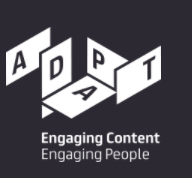Author ORCID Identifier
https://orcid.org/0000-0002-1767-4744
Document Type
Article
Rights
Available under a Creative Commons Attribution Non-Commercial Share Alike 4.0 International Licence
Disciplines
1.1 MATHEMATICS, Computer Sciences, Epidemiology
Abstract
Equation-based and agent-based models are popular methods in understanding disease dynamics. Although there are many types of equation-based models, the most common is the SIR compartmental model that assumes homogeneous mixing and populations. One way to understand the effects of these assumptions is by agentization. Equation-based models can be agentized by creating a simple agent-based model that replicates the results of the equationbased model, then by adding complexity to these agentized models it is possible to break the assumptions of homogeneous mixing and populations and test how breaking these assumptions results in different outputs. We report a set of experiments comparing the outputs of an SEIR model and a set of agent-based models of varying levels of complexity, using as a case study a measles outbreak in a town in Ireland. We define and use a six level complexity hierarchy for agent-based models to create a set of progressively more complex variants of an agentized SEIR model for the spread of infectious disease. We then compare the results of the agentbased model at each level of complexity with results of the SEIR model to determine when the agentization breaks. Our analysis shows this occurs on the fourth step of complexity, when scheduled movements are added into the model. When agents networks and behaviours are complex the peak of the outbreak is shifted to the right and is lower than in the SEIR model suggesting that heterogeneous populations and mixing patterns lead to slower outbreaks compared homogeneous populations and mixing patterns.
DOI
https://doi.org/10.1016/j.jcmds.2022.100056
Recommended Citation
Elizabeth Hunter, John D. Kelleher, Understanding the assumptions of an SEIR compartmental model using agentization and a complexity hierarchy, Journal of Computational Mathematics and Data Science, Volume 4, 2022, 100056, ISSN 2772-4158, DOI: 10.1016/j.jcmds.2022.100056.
Funder
ADAPT Centre for Digital Content Technology



Publication Details
Journal of Computational Mathematics and Data Science
Open access
https://www.sciencedirect.com/science/article/pii/S2772415822000189?via%3Dihub